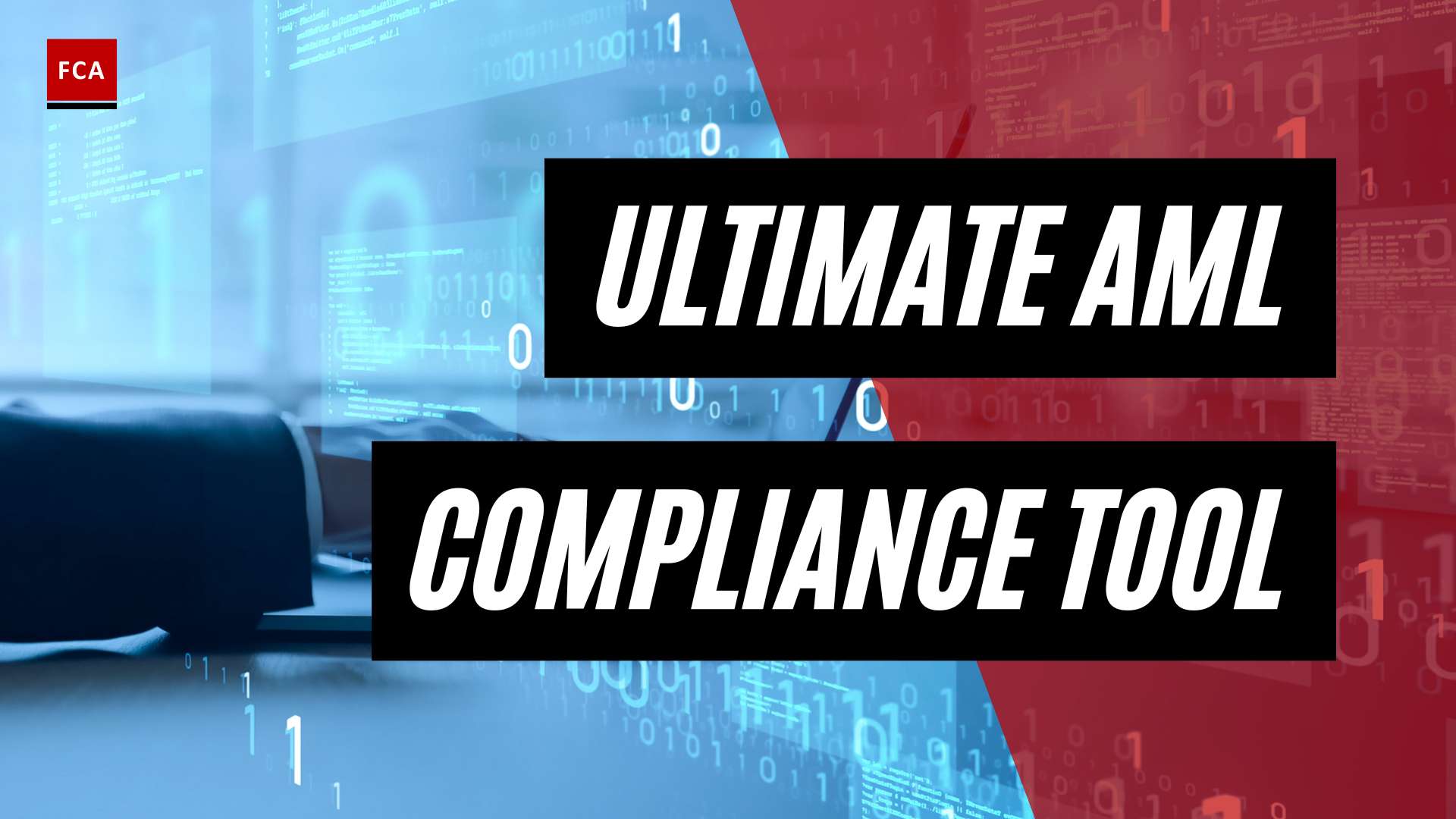Overview of FinCEN
The Financial Crimes Enforcement Network (FinCEN) stands as a critical institution in the ongoing battle against financial crimes on both domestic and international fronts.
History and Establishment
FinCEN was established in 1990 as a bureau of the United States Department of the Treasury. Its creation aimed to aid federal, state, local, and international law enforcement through the analysis of information mandated under the Bank Secrecy Act (BSA), a crucial tool in the fight against money laundering (FinCEN). This information about financial transactions is collected and analyzed to combat money laundering, terrorist financing, and other financial crimes, both domestically and internationally (Meta Stack Exchange).
FinCEN’s Mission
The mission of FinCEN is to safeguard the financial system from illicit use, combat money laundering, and related crimes including terrorism. This is achieved by promoting national security through the strategic use of financial authorities and financial intelligence collection, analysis, and dissemination (FinCEN). These efforts are part of a larger global initiative to combat financial crimes, involving global regulatory bodies such as the International Monetary Fund (IMF), the World Bank Group, and the Financial Action Task Force (FATF).
The role of FinCEN in administering the Bank Secrecy Act, supporting law enforcement agencies, and cooperating with international counterparts forms a crucial part of the global effort to combat illicit financial activities. As we delve deeper into the workings and impact of FinCEN, it is evident that the agency’s role extends beyond regulation and enforcement – it serves as a beacon of oversight in the ever-complex world of financial transactions.
The Role of FinCEN
The Financial Crimes Enforcement Network (FinCEN) plays a crucial role in safeguarding the financial system from illicit use, combating money laundering, and related crimes, including terrorism. Its strategic use of financial authorities and financial intelligence collection, analysis, and dissemination promotes national security.
Administration of Bank Secrecy Act
One of the primary roles of FinCEN is administering the Bank Secrecy Act (BSA) enacted in 1970 (GitHub). The BSA mandates financial institutions in the US to assist government agencies in detecting and preventing money laundering.
Under the BSA, financial institutions must keep records of cash purchases, file reports of cash transactions exceeding $10,000, and report suspicious activity that might signify money laundering, tax evasion, or other criminal activities.
The information collected under the BSA is critical to the fight against money laundering, and FinCEN’s role in its administration is pivotal in the effective detection, prevention, and prosecution of financial crimes.
Support to Law Enforcement Agencies
FinCEN was established to aid federal, state, local, and international law enforcement through the analysis of information mandated under the Bank Secrecy Act (BSA).
By providing timely and relevant financial intelligence, FinCEN supports law enforcement agencies in their investigations and prosecutions of financial crime, money laundering, and related offenses. The financial intelligence gathered helps to map monetary transactions, identify suspicious patterns, and build robust cases against criminals.
International Cooperation
In a world of globalized finances, FinCEN’s role extends beyond national borders. The agency collaborates with international bodies such as the Financial Action Task Force (FATF), International Monetary Fund (IMF), and World Bank Group to combat money laundering and other financial crimes at a global level.
FinCEN also engages in information exchange and mutual support with its counterparts in other countries. It is a part of the Egmont Group, an international network of Financial Intelligence Units, enhancing the sharing of financial intelligence across borders.
FinCEN’s international cooperation efforts contribute to a unified global stance against financial crime, reinforcing the measures taken at the national level with international support and cooperation. This international cooperation is vital in the effective prevention and prosecution of financial crimes that cross national borders.
FinCEN’s Regulatory Function
A critical aspect of FinCEN’s role in combatting financial crimes entails its regulatory functions. This includes the administration of the Bank Secrecy Act (BSA) E-Filing System and the enforcement of actions against violations of the Act.
Bank Secrecy Act (BSA) E-Filing System
The Bank Secrecy Act’s recordkeeping and reporting requirements are instrumental in establishing a financial trail for investigators. This trail enables the tracking of criminals, their activities, and their assets, which can expose hidden details in money laundering schemes (FinCEN).
FinCEN staff has developed expertise in identifying leads and revealing hidden details within the complexities of money laundering methods. This expertise adds value to the information collected under the BSA and aids in the investigation of financial crimes. In their work, FinCEN conducts research and analysis on various forms of intelligence, maintaining one of the largest repositories of information accessible to law enforcement by linking to diverse databases.
Enforcement Actions
FinCEN’s enforcement actions are pivotal in ensuring compliance with the BSA. These actions may involve civil money penalties against financial institutions and individuals who violate the BSA’s requirements. The severity of the penalty is often commensurate with the extent of the violation, the harm caused, and the financial condition of the violator.
One of the key regulations under FinCEN’s purview is Section 314(a) which enables Federal, State, local, and foreign (European Union) law enforcement agencies to reach out to financial institutions. The objective is to locate accounts and transactions of persons that may be involved in terrorism or significant money laundering (Financial Crimes Enforcement Network (FinCEN)).
The enforcement actions taken by FinCEN send a strong message to the financial industry about the importance of adhering to BSA regulations and the potential consequences of non-compliance. These actions also serve to deter future violations and promote a culture of compliance within financial institutions.
FinCEN’s regulatory function is a crucial aspect of its role in combating financial crimes. This function, coupled with its collaborative initiatives with other financial institutions, enables FinCEN to maintain a robust and effective system for deterring and detecting money laundering and other financial crimes. For a comprehensive understanding of FinCEN’s role, it’s also important to consider the impact of legislation on its operations, and its commitment to privacy and data security.
Collaborative Initiatives
In its effort to combat financial crimes, the Financial Crimes Enforcement Network (FinCEN) has undertaken several collaborative initiatives. These collaborations play a vital role in bolstering FinCEN’s capabilities and enhancing its effectiveness in preventing and detecting financial crimes.
FinCEN Exchange
The FinCEN Exchange is one such initiative. Established on January 1, 2021, under the Anti-Money Laundering Act of 2020 (AML Act), the FinCEN Exchange facilitates a voluntary public-private information-sharing partnership between law enforcement agencies, national security agencies, financial institutions, and FinCEN (FinCEN).
The objective of the FinCEN Exchange is to enable the private sector to better identify risks through innovative public-private information sharing. This collaboration provides critical information to FinCEN and law enforcement to disrupt money laundering, terrorism financing, and other financial crimes.
The FinCEN Exchange operates under various legal authorities such as Section 6103 of the AML Act and 31 U.S.C. § 310. These laws allow FinCEN to furnish information to financial institutions for the detection, prevention, and prosecution of terrorism, organized crime, money laundering, and other financial crimes.
Participation in the FinCEN Exchange program is invitation-based and voluntary for financial institutions. FinCEN determines the institutions invited through consultation with law enforcement and relevant stakeholders. Financial institutions invited are encouraged to register under the USA PATRIOT Act Section 314(b) and share information voluntarily with other authorized financial institutions as appropriate. However, registration under the Section 314(b) program or participation in a FinCEN Exchange briefing does not obligate the financial institution to participate in 314(b) information sharing (FinCEN).
Partnership with Financial Institutions
In addition to the FinCEN Exchange, the Financial Crimes Enforcement Network actively collaborates with financial institutions. This partnership is crucial for the effective enforcement of anti-money laundering (AML) and counter-terrorism financing (CTF) regulations.
Financial institutions, with their extensive customer data, can provide valuable insights to FinCEN. These insights can help identify patterns and trends in financial transactions that might signify illegal activities.
In return, FinCEN provides guidance and support to these institutions in their compliance efforts. This includes helping them understand AML and CTF regulations, conducting AML risk assessments, and implementing effective compliance programs.
These collaborative efforts between FinCEN and financial institutions play a significant role in creating a robust and effective system for preventing and detecting financial crimes. This is a testament to the power of collaboration in enhancing national security and protecting the integrity of the global financial system.
Impact of Legislation on FinCEN
Significant legislation has been enacted over the years that has broadened the scope and authority of the Financial Crimes Enforcement Network (FinCEN), enabling it to more effectively combat money laundering, terrorist financing, and other financial crimes. Let’s delve into two such key legislative acts: the USA PATRIOT Act and the Anti-Money Laundering Act of 2020.
USA PATRIOT Act
The USA PATRIOT Act, enacted in the wake of the September 11, 2001 terrorist attacks, has significantly expanded FinCEN’s mandate and authority. The Act enabled the agency to impose regulatory requirements on financial institutions to aid in the prevention of illicit financial activities.
The legislation has enhanced FinCEN’s ability to collect, analyze, and disseminate financial intelligence related to potential money laundering and terrorist financing activities. This expanded authority has proven instrumental in fortifying the nation’s financial system against these threats.
The USA PATRIOT Act represents a substantial step forward in the national and international fight against financial crimes, bolstering the efforts of agencies like FinCEN, the Office of Foreign Assets Control (OFAC), and global entities such as the International Monetary Fund (IMF) and the World Bank Group.
Anti-Money Laundering Act of 2020
The Anti-Money Laundering Act of 2020 (AML Act), enacted on January 1, 2021, represents another significant step forward in the fight against financial crimes. The Act established the FinCEN Exchange, a voluntary public-private information-sharing partnership.
This partnership, involving law enforcement agencies, national security agencies, financial institutions, and FinCEN, aims to combat various financial crimes such as money laundering, terrorism financing, and organized crime more effectively. The objective is to protect the financial system and promote national security (FinCEN).
The AML Act also strengthens the requirements for AML risk assessments, further enhancing the ability of financial institutions to identify, assess, and mitigate financial crime risks.
These legislative acts underscore the essential role of FinCEN in combating financial crimes. They provide the agency with the necessary authority and tools to protect and maintain the integrity of the financial system from illicit activities. The collaborative efforts between FinCEN and other national and international financial enforcement agencies, including the Basel Committee on Banking Supervision, the Egmont Group, the Wolfsberg Group, and the Financial Action Task Force (FATF), further amplify these efforts in the global battle against financial crimes.
Privacy and Data Security
One of the key responsibilities of the Financial Crimes Enforcement Network (FinCEN) is the safeguarding of collected data. The agency also maintains strict control over data access by law enforcement agencies, ensuring the privacy and security of the data under its purview.
Safeguarding Collected Data
Safeguarding the privacy of collected data is a fundamental responsibility of FinCEN, which strongly influences all data management functions and activities of the agency (FinCEN). The agency has stringent measures in place to protect the data from unauthorized access, use, dissemination, or destruction.
FinCEN’s data safeguarding measures are comprehensive, encompassing physical security controls, technical controls, and administrative controls. These measures are designed to ensure the confidentiality, integrity, and availability of the data collected by the agency, while also ensuring compliance with all relevant laws, regulations, and policies.
These safeguards are crucial for maintaining trust in FinCEN’s operations. The financial institutions that report to FinCEN must have confidence that the sensitive information they provide will be adequately protected.
Data Access by Law Enforcement Agencies
Although FinCEN collects a vast amount of data, access to this data is strictly controlled. Federal, State, and Local law enforcement agencies can access Bank Secrecy Act data through a secure web connection after their agency has entered into a Memorandum of Understanding with FinCEN. FinCEN provides training, and monitors use to ensure that the BSA information is properly used, disseminated, and kept secure.
FinCEN’s regulations under Section 314(a) enable Federal, State, local, and foreign (European Union) law enforcement agencies to reach out to financial institutions to locate accounts and transactions of persons that may be involved in terrorism or significant money laundering (Financial Crimes Enforcement Network (FinCEN)).
In addition, FinCEN uses a “platform” approach to support law enforcement needs, offering on-site access at FinCEN to employees from other federal agencies that need to conduct research on cases under investigation by those agencies (Financial Crimes Enforcement Network (FinCEN)).
With this balance between safeguarding data and providing necessary access to law enforcement agencies, FinCEN plays an essential role in the battle against financial crimes. Its work is part of a larger international effort, involving organizations such as the International Monetary Fund (IMF), the World Bank Group, and the Financial Action Task Force (FATF).









